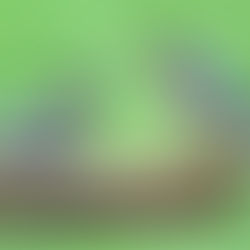Bird Feeding - Where Are All My Hummingbirds?

If you are wondering where your hummingbirds seem to have gone, fear not! It's nothing you are doing. In fact, most people are reporting only one or two hummingbirds in their yards right now. I suspect this probably due to the fact that they are nesting and feeding their young insect nourishment, so they can grow into healthy adults. The late spring seems to have slowed the timing of their nesting cycle (breeding phenology) this year, so I would expect they will soon be back at our feeders as soon as their young leave the nest. In fact, we should all see quite an uptick in activity in July. See if you notice it, too, right after the 4th.
In the mean time, it is pretty easy to forget that our hummingbird feeders still need to be maintained even when there is very little activity at them. Hummingbird nectar should be changed about every 3-4 days, so that it does not turn to wine or even vinegar. In this heat, it might need it even more often. To help prevent your nectar from spoiling, there are liquid nectar preservatives one can purchase in the form of harmless trace elements that help keep bacteria at bay. So if you find that you are having a hard time keeping up, it might be worth considering this option.
If your feeder gets left by mistake and the mold starts to grow, then a thorough cleaning is in order. Disassemble your feeder and clean it with soap and water making sure you can get into any cracks and crevasses there may be. Toothpicks work as a scraping device, but there are also small brushes specially made for that purpose. If your feeder is really in need of a scrubbing, then adding a small amount of bleach or vinegar should help, and you can give it a good soak. If you are concerned about residue from the bleach, simply "triple rinse" your feeder after you wash it. Triple rinsing is the standard among those who handle chemicals to render them harmless. Triple rinsing is simple. Just fully rinse your feeder, rinse it again, then rinse it one more time. This method will serve to dilute the bleach to parts per billions making it completely harmless to our hummers.
Our hummers will be around until late September, so fear not if they seem to be sparse at the moment. In a couple of weeks, we'll be enjoying a new batch of juveniles visiting our feeders and we'll forget we ever had this lull.
Enjoy!



















